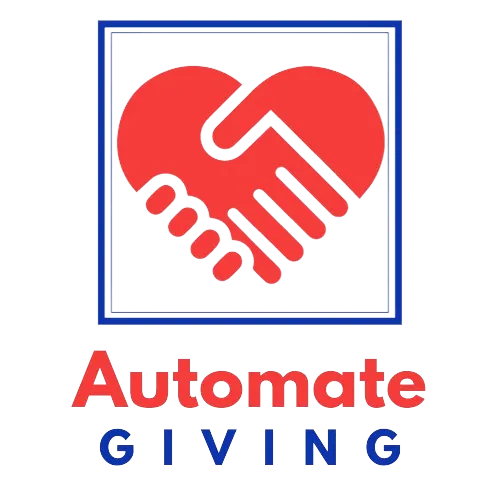Resources

5 Tips to Optimize Your Donor Outreach
5 Tips to Optimize Your Donor Outreach Strategy
1. Personalize Your Donor Engagement
In today’s world, donors can easily distinguish between generic mass messages and authentic communications. Addressing someone as “Dear Supporter” just doesn’t cut it anymore. To make your donor outreach effective, you need to get to know your donors personally.
Segment Your CRM for Personalization
Start by organizing your CRM (Constituent Relationship Management) system to reflect the giving history and interests of your donors. Segmenting your database allows you to send personalized messages that reference past contributions, especially when outreaching to lapsed donors. This personalized approach shows donors that you value their past involvement and have taken the time to understand their connection to your cause.
Tailor Communication Channels
Your CRM can also provide insight into how your donors prefer to be contacted—whether by email, phone, or other communication channels. Use this information to tailor not just your messages, but also how you deliver them, ensuring that you reach your donors in the most effective way.
Leverage Prospect Research
Additionally, conducting prospect research can help you better understand the financial capacity and likelihood of potential donors to contribute. Identifying wealth indicators (like real estate ownership or stock holdings) and willingness indicators (such as prior donations to similar causes) allows you to target your fundraising efforts more precisely. This way, you can craft tailored tasks that resonate with each donor, making your outreach more relevant and effective.
Automate Personalized Follow-Ups
Automation can help maintain personalized contact without overwhelming your team. Set up automated email sequences that trigger based on donor actions, such as a follow-up email after a donation thanking them and providing an update on how their gift is being used. This keeps the conversation going and strengthens the relationship over time.
For more tips on leveraging data to enhance donor engagement, visit Automate Giving.
2. Diversify Your Fundraising Efforts
If you’ve been reaching out to the same supporters with the same requests year after year, it might be time to diversify your approach. Donors appreciate variety and want to see that your organization is evolving.
Promote Matching Gift Programs
Introduce your donors to new and unique giving opportunities, like corporate matching gift programs. These programs allow donors to maximize the impact of their contributions without giving more out of their own pockets. Promote these opportunities through your newsletters and social media, and encourage eligible donors to take advantage of them.
Highlight Special Fundraising Events
Beyond matching gifts, keep your supporters informed about upcoming events, whether they’re virtual fundraisers, galas, or special campaigns. Many of your donors are likely willing to participate in efforts beyond what they’ve traditionally supported, so make sure they know about all the ways they can get involved.
Expand Engagement Beyond Donations
Don’t forget to offer engagement opportunities that aren’t solely focused on donations. Volunteering, advocacy, and spreading awareness on social media are all ways donors can contribute to your cause without opening their wallets. These activities help deepen their connection to your organization and show that you value their involvement in more than just financial terms.
Create Donor Recognition Programs
Consider implementing donor recognition programs that reward loyalty and consistent engagement. This could include exclusive updates, invitations to special events, or public recognition in newsletters or on your website. Recognizing your donors’ ongoing support can strengthen their connection to your cause and encourage continued contributions.
3. Improve Your Thank-You Letters
Expressing gratitude is a critical component of your donor outreach strategy. A well-crafted thank-you letter can go a long way in making donors feel appreciated and valued.
Personalize and Be Sincere
Make your thank-you letters personal and sincere. Use your CRM data to address each donor by their preferred name and acknowledge their specific contributions. Frame their donation as a heroic act that made a tangible difference in the community. Be warm and appreciative, but avoid overly sentimental language that might come across as insincere.
Be Specific About Impact
Be specific about how their donation was used. Whether it funded a particular project or helped a specific individual, sharing these details makes your mission feel more real to your donors and reinforces their commitment to your cause.
Keep It Concise
Keep your thank-you messages concise. Respect your donors’ time by being brief, and avoid asking for another donation in your initial thank-you message—it can feel pushy and detract from the sincerity of your appreciation.
Diversify Your Appreciation Methods
Consider diversifying how you show appreciation. In addition to thank-you letters, think about sending personalized video messages or holding appreciation events where donors can meet the beneficiaries of their contributions. This multi-faceted approach can make your gratitude more memorable and meaningful.
To further express your gratitude, consider highlighting donors on social media or through email. For major donors, a personal phone call or in-person meeting can make a big impact.
4. Show Gratitude Through Action
Telling your donors that you appreciate them is important, but showing your appreciation through actions is even more impactful. By listening to your donors and adapting to their preferences, you demonstrate your commitment to them.
Make Donations Easy and Secure
One way to show gratitude is by making the donation process as convenient as possible. Offer multiple payment options, such as credit cards, checks, or mobile payments, so donors can choose what works best for them. Providing a mobile donation platform allows donors to give quickly and easily, without needing a desktop or laptop.
Ensure Data Security
Another way to show your commitment is by ensuring the security of your donors’ personal information. Use a payment processor that complies with Payment Card Industry (PCI) standards to keep their data safe. Additionally, monitor for any unusual activity, like large refund requests, to prevent fraud and protect your donors.
Keep Donors Informed
Keep your donors informed about how their contributions are being used. Regular updates on the impact of their donations can help build trust and reinforce their decision to support your cause. This ongoing communication shows that you’re not just taking their money but also actively using it to create positive change.
Balancing convenience with security not only makes the donation process smoother but also builds trust with your donors. They’ll appreciate knowing that their contributions are both easy to make and securely handled.
5. Consider Hiring a Fundraising Consultant
If you’ve tried various strategies and still aren’t seeing the results you want, it might be time to bring in a fundraising consultant.
Seek Expert Guidance
A consultant can offer valuable insights and guidance on how to strengthen your donor relationships and increase your fundraising success. They can conduct assessments, feasibility studies, and help manage capital campaigns, ensuring that your strategies are well-aligned with your goals.
Strategic Planning
Consultants also provide strategic planning services, such as organizing board retreats, launching stakeholder surveys, and developing actionable plans. This helps your organization stay on track and focused on achieving your mission.
Leadership Development
Leadership training is another key service offered by fundraising consultants. They can help develop strong leaders within your organization, ensuring that your board members and staff are equipped to drive your donor outreach efforts effectively.
Find the Right Fit
When searching for a consultant, look for one with experience in your sector. This ensures that their advice and strategies are tailored to your organization’s specific needs.
Assess the ROI
Before committing to a consultant, assess the potential return on investment (ROI). While hiring a consultant is an upfront cost, the long-term benefits, such as increased donations and more efficient fundraising processes, can make it a worthwhile investment.
By implementing these strategies, you can enhance your donor relationships, diversify your engagement opportunities, and ultimately boost your fundraising results.
For more information on how a fundraising consultant can help your nonprofit, visit Automate Giving.
